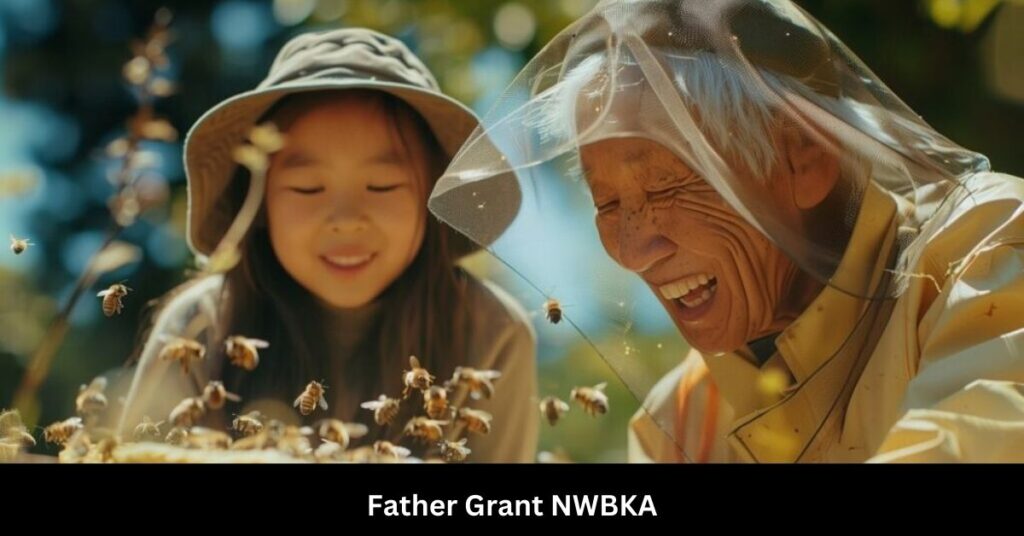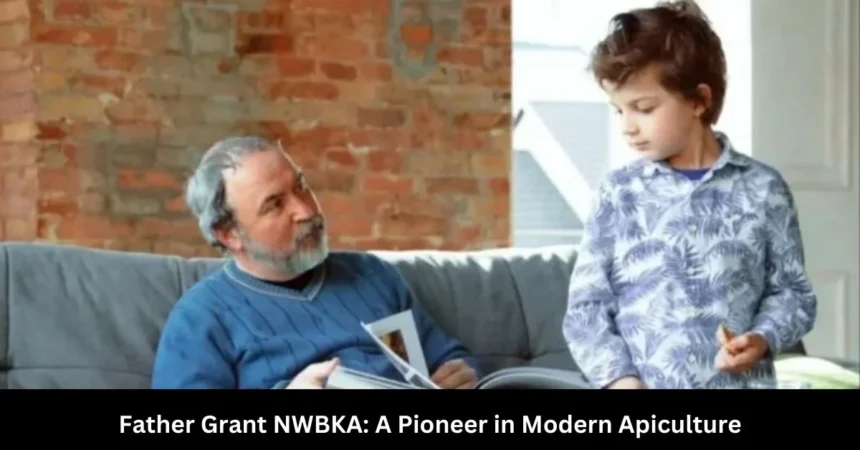Introduction to Father Grant NWBKA
In the world of apiculture, few names command as much respect as Father Grant Nwbka, a towering figure whose association with the NWBKA (National Beekeeping Association) revolutionised beekeeping practices. Known for his innovative techniques, sustainable approaches, and unwavering commitment to the well-being of pollinators, Father Grant’s legacy continues to influence both amateur and professional beekeepers worldwide. This article provides a detailed exploration of his life, his methods, and the lessons modern apiculture can learn from his visionary contributions.
Father Grant’s Early Years: A Path Shaped by Nature
Born into a rural community, Father Grant’s love for nature was evident from an early age. Surrounded by the sights and sounds of thriving ecosystems, he developed a deep appreciation for the interconnectedness of life. Among all the wonders of nature, bees captivated his attention the most. Their industrious nature, intricate communication, and vital role in pollination fascinated him and inspired him to study them more closely.
In his youth, Father Grant dedicated himself to understanding bee behaviour and ecology. He spent countless hours observing hives, documenting the roles of worker bees, drones, and queens, and experimenting with rudimentary beekeeping techniques. His early trials laid the foundation for the groundbreaking methodologies he would later develop.
Father Grant NWBKA: Driving Innovation and Education
Joining the NWBKA was a turning point in Father Grant’s career. The organisation, already renowned for its dedication to beekeeping excellence, provided him with a platform to implement his visionary ideas. Father Grant’s involvement elevated the NWBKA’s mission, making it a hub of innovation, education, and advocacy for pollinators.
1. Revolutionising Hive Management
One of Father Grant’s most impactful contributions was his redefinition of hive management. His techniques focused on maintaining hive health while maximising productivity. By studying the natural behaviours of bees, he designed strategies that aligned with their instincts, resulting in healthier colonies and higher-quality honey.
2. Promoting Sustainability
Father Grant championed sustainability in beekeeping long before it became a mainstream concern. His methods minimise environmental impact, avoided harmful chemicals, and encouraged biodiversity. These practices not only protected bee populations but also benefited local ecosystems.
3. Knowledge Sharing and Training
A firm believer in the power of education, Father Grant organised workshops, seminars, and training sessions under the NWBKA banner. He developed comprehensive training materials that are still referenced by beekeepers today. His ability to simplify complex concepts made his teachings accessible to all, from novices to seasoned professionals.
Also Read: Boost Creativity with Ashley Ann Tahilan Storyboard Guide
The Father Grant Method: A Blueprint for Success

The Father Grant Nwbka Method, as it is now known, embodies his philosophy of harmony between beekeepers, bees, and the environment. This approach integrates scientific insights with traditional wisdom, offering a sustainable path for modern apiculture.
Core Principles of the Father Grant Method
- Localised Solutions: Father Grant advocated for beekeepers to adapt their practices to local conditions, using indigenous materials for hive construction and considering regional climate patterns.
- Natural Pest Management: Instead of relying on synthetic pesticides, his method employed natural remedies and preventative measures, including the strategic use of plants that repel pests.
- Hive Rotation: Recognizing the importance of environmental factors, Father Grant introduced hive rotation practices to optimise colony health and productivity.
Impacts of the Father Grant Method
The widespread adoption of this method has led to healthier bee populations, reduced colony collapse incidents, and a renewed focus on ethical beekeeping practices.
Challenges Faced by Father Grant and How He Overcame Them
Father Grant’s journey was far from easy. Early in his career, he encountered significant resistance from traditional beekeepers who were hesitant to change long-established practices. Critics questioned the feasibility and scalability of his methods, often dismissing them as impractical or overly idealistic.
Despite these challenges, Father Grant remained steadfast. He focused on demonstrating the tangible benefits of his techniques, conducting experiments and documenting results that showcased improved hive health and productivity. Over time, his methods gained acceptance, earning him widespread recognition and respect.
The Global Influence of Father Grant’s Work
While his primary association was with the NWBKA, Father Grant’s influence extended far beyond its borders. His principles have been embraced by beekeeping communities worldwide, inspiring adaptations that address specific regional challenges.
1. Adoption in Developing Nations
In resource-constrained regions, Father Grant’s emphasis on low-cost, sustainable practices has been transformative. By using locally available materials and focusing on natural methods, small-scale farmers have been able to integrate beekeeping into their agricultural practices, boosting both income and food security.
2. Academic Recognition
Father Grant Nwbka work has been cited in numerous academic studies on apiculture, sustainability, and pollination ecology. Universities and research institutions continue to explore his methodologies, validating their scientific underpinnings and refining them for modern applications.
3. Environmental Advocacy
Father Grant’s advocacy for pollinator protection has also inspired global movements to preserve bee habitats and combat threats like pesticide overuse and climate change. His work has underscored the critical role of bees in maintaining biodiversity and supporting agricultural systems.
Also Read: Why Sinpcity is a Must-Visit Destination
Modern Beekeeping and the Enduring Legacy of Father Grant

Today, Father Grant’s teachings are more relevant than ever. As bee populations face unprecedented threats, his emphasis on sustainability and ecological balance offers valuable solutions. Beekeepers who adopt his methods report improved colony resilience, higher honey yields, and a deeper connection to the natural world.
Innovations Inspired by Father Grant
- Digital tools for hive monitoring now incorporate principles from the Father Grant Method, such as non-intrusive data collection.
- Organic honey producers frequently credit his sustainable practices for their success in meeting consumer demand for ethically produced goods.
Beekeeping as a Reflection of Values
Beekeeping is much more than a practical activity for Father Grant; it is a living metaphor for the values he holds dear. The gentle art of caring for bees mirrors his dedication to nurturing relationships and fostering harmony in his community. Here are some ways in which beekeeping reflects Father Grant’s core values:
1. Stewardship and Responsibility
- Beekeeping teaches the importance of caring for the environment and the creatures that depend on it.
- Father Grant sees the beehive as a microcosm of the world: every small action has a ripple effect on the whole.
- His work with NWBKA demonstrates his commitment to teaching others how to take responsibility for the natural world.
2. Collaboration and Teamwork
- Bees thrive on teamwork; every member of the hive has a role to play for the community’s survival.
- This reflects Father Grant’s belief in the power of collaboration, whether within NWBKA or the broader community.
- He often draws parallels between the structure of a hive and the importance of unity in human relationships.
3. Patience and Perseverance
- Beekeeping requires time, effort, and patience to yield results, from tending the hives to harvesting honey.
- Father Grant values the lessons of perseverance and faith that come from waiting for the fruits of one’s labour.
- His dedication to both beekeeping and mentoring reflects his belief in long-term growth and resilience.
4. Balance and Harmony
- A beehive thrives on balance – between the queen, the workers, and the drones; between collecting resources and conserving them.
- Father Grant often uses the hive as a symbol for how balance can be achieved in life, blending work, rest, and community.
5. Generosity and Service
- Bees work tirelessly to produce honey, much of which is shared with humans, embodying a spirit of selflessness.
- Father Grant sees beekeeping as a reminder of the importance of giving back – to others and to the environment.
- The proceeds from his honey sales often go toward community initiatives, further reflecting this value.
Practical Tips for Aspiring Beekeepers: Learning from Father Grant
For those inspired by Father Grant’s legacy, here are practical steps to incorporate his principles into your beekeeping practice:
- Prioritise Hive Health: Regularly monitor colonies for signs of stress, disease, or pest infestations, addressing issues promptly using natural remedies.
- Adapt to Local Conditions: Use locally sourced materials for hives and tailor your practices to the unique climate and flora of your region.
- Engage in Continuous Learning: Stay informed about advancements in beekeeping techniques and share your knowledge with others.
- Advocate for Pollinators: Support initiatives that protect bee habitats and promote biodiversity.
FAQs About Father Grant NWBKA
1. Who is Father Grant, and what is his connection to the NWBKA?
Father Grant was a pioneering figure in the field of beekeeping, closely associated with the National Beekeeping Association (NWBKA). He is celebrated for his innovative, sustainable methods that revolutionised modern apiculture and for his advocacy for pollinator conservation.
2. What is the Father Grant Method?
The Father Grant Method is a holistic approach to beekeeping that integrates scientific principles with traditional practices. It emphasises sustainable hive management, natural pest control, and the use of local resources to ensure healthy colonies and minimal environmental impact.
3. Why is Father Grant’s work significant?
Father Grant’s contributions transformed beekeeping by improving hive productivity, promoting bee health, and fostering sustainable practices. His work also raised awareness about the critical role of pollinators in agriculture and biodiversity.
4. How did Father Grant promote sustainability in beekeeping?
Father Grant championed eco-friendly practices such as:
- Avoiding synthetic pesticides and using natural pest control methods.
- Constructing hives from locally sourced, sustainable materials.
- Encouraging biodiversity to create supportive environments for bees.
5. What challenges did Father Grant face during his career?
Father Grant faced resistance from traditional beekeepers who were sceptical of his innovative methods. However, his success in improving hive health and productivity eventually won widespread acceptance and recognition.
Conclusion
Father Grant Nwbka contributions to the NWBKA and the field of beekeeping have left an enduring legacy. His innovative methods, emphasis on sustainability, and dedication to education continue to inspire beekeepers and environmentalists alike. By following his principles, we can ensure a thriving future for bees and the ecosystems they support.
Read More: How Thsgmdals Wndrp Drives Efficiency






